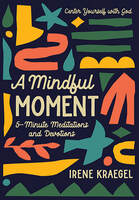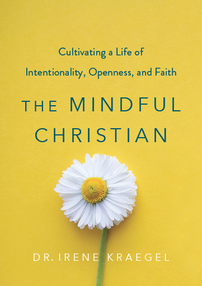|
Henry Williams is contributing as a guest writer from his blog, A Road Called Hope, where he writes about the intersection of depression and faith. He shares thoughts here related to self-judgment, Jesus, and peace. Thanks Henry! “Which shoes should I wear today, Henry? My new pair of sneakers hasn’t been broken in yet, but my old ones are half a size too small for me.”
I sighed when my dear sister asked me this. I was upset that I didn’t think my advice would move her towards choosing one way or the other, and impatient at her for being indecisive when all I wanted to do was get everyone out the door. But what would have been a minor frustration for many of my friends turned into a lengthy internal dialogue as we sat next to each other in the car that morning. Was I right to be frustrated at her? Only moments after we had left the house, frustration at my sister was no longer the main thing I was feeling. Rather, the memory of that impatience was causing me to feel guilty. Shouldn’t I have been more kind, more gentle towards her? Why couldn’t I be a good older brother to her? As in Dr. Kristin Neff’s Self-Compassion exercises, my mind had created a dialogue between the accused and the accuser. This is not an uncommon occurrence for me. I have long learned to stifle certain emotions (fear, anger, shame, guilt) by telling myself that I ought not to be experiencing them. The word ought involves moral evaluation, or judgment. Paradoxically, judging myself in this way has lead directly to more guilt and indirectly to more of my other ‘blacklisted’ emotions. As I became conscious of this pattern I began to ask: Must self-examination involve self-judgment? Can investigating one’s motives, hidden thoughts and desires without evaluating them be a faithful moment in Christian worship? These are questions that have concerned the Christian tradition for centuries. One thinks of St. Ignatius of Loyola’s spiritual exercises, or perhaps the traditional Anglican collect for purity: “Almighty God, unto whom all hearts be open, all desires known, and from whom no secrets are hid: cleanse the thoughts of our hearts by the inspiration of thy Holy Spirit, that we may perfectly love thee, and worthily magnify thy holy Name; through Christ our Lord. Amen.” One thinks of the Puritans of England and New England and pious zealots throughout Christian history, who, at their worst, were consumed by thoughts of their own guilt and blind to the transcendent grace of God. One also might think of modern and postmodern philosophical interrogations (such as Nietzsche’s and Bernard Williams’) of the guilt-dominated Western Christian conscience. As heirs to these rich—and, let’s be honest, confusing—philosophical and theological understandings of guilt, perhaps we might return to the words of Christ himself for clarity on the question of guilt. I’m thinking in particular of his words to the woman caught in adultery in John 8. After warding off her would-be executioners by simply inviting them to question their own righteousness, Jesus asks the unnamed woman, “Has no one condemned you?” “No one, sir,” she answers. “Then neither do I condemn you,” he responds. “Then neither do I condemn you.” Christ’s words here do not suggest an upheaval of guilt, or express the idea that guilt is an unhelpful emotion under all circumstances. They rather constitute a suspension of guilt and judgment. After all, Jesus is just about to tell the woman to “go and sin no more,” implying that her past actions were indeed worthy of guilt. But amidst the fury of her accusers, Christ invites the woman into a moment of blissful peace, peace brought on by the retreat of all accusations, the type of peace that Dr. Neff attempts to lead practicers of self-compassion into in the exercise above. One could even say: Christ leads the woman into self-awareness. Paradoxically, the suspension of judgment allowed her to see herself as she truly was: a beloved child of God. Oftentimes we think that God is accusing us when in reality we are our worst critics, poised to throw the stones at our very selves. Do we dare to mindfully examine ourselves, suspending judgment? If so, perhaps we might encounter the very grace of God, who is always saying to us: “Neither do I condemn you.” What if we were to practice this self-awareness? What if we were to sit, if only for a moment, in the absence of all judgment? For if Christ does not condemn us, “who is there to condemn?” (Rom. 8:34). What if the voices of judgment that we needed to learn to silence were not God’s, but our own? If these voices are just noise and not worth a tenth of the heed we give them, then silencing them will bring us peace. And in the quiet, perhaps we might even glimpse the face of Jesus…tenderly speaking to us words of peace and sending us out to lead a transformed life. - Henry Williams
2 Comments
Stephen R.
9/5/2017 05:55:12 pm
This is beautiful, Henry!
Reply
9/11/2017 03:22:19 pm
Hi Stephen,
Reply
Leave a Reply. |
Author
I am Irene Kraegel. I am licensed as a clinical psychologist and teach mindfulness on a faith-based university campus. I practice mindfulness because it opens me up to God (a.k.a. brings joy). I am writing here in hopes of sharing some of my experiences and thoughts related to the practice of mindfulness in the life of a Christian. Thanks for reading! Books
Blog archives
December 2023
|


